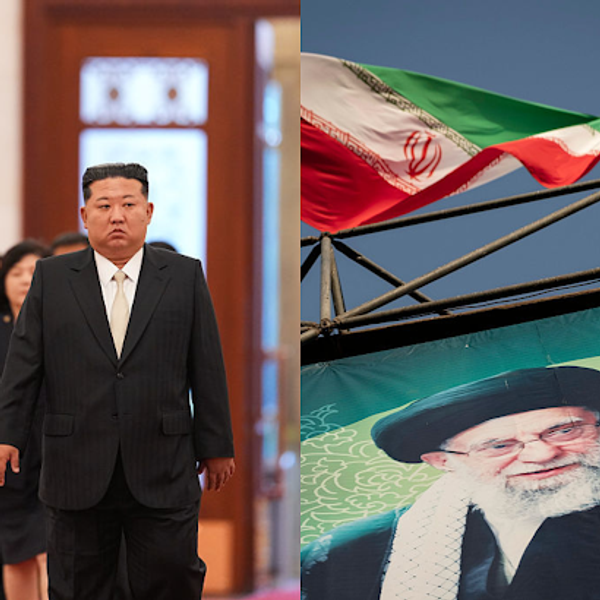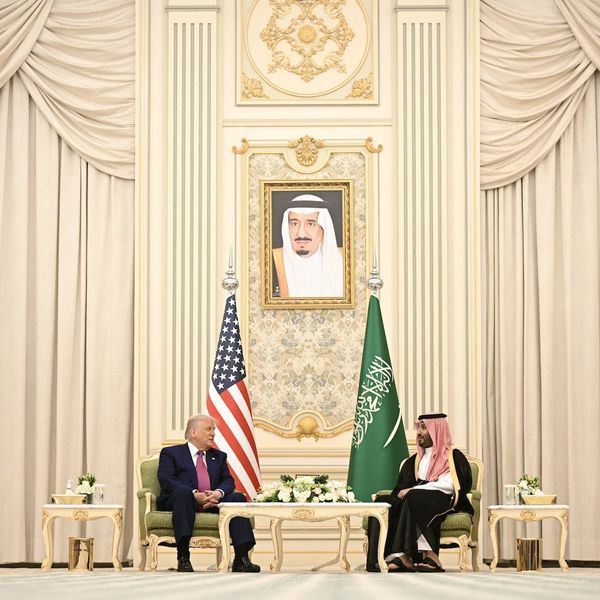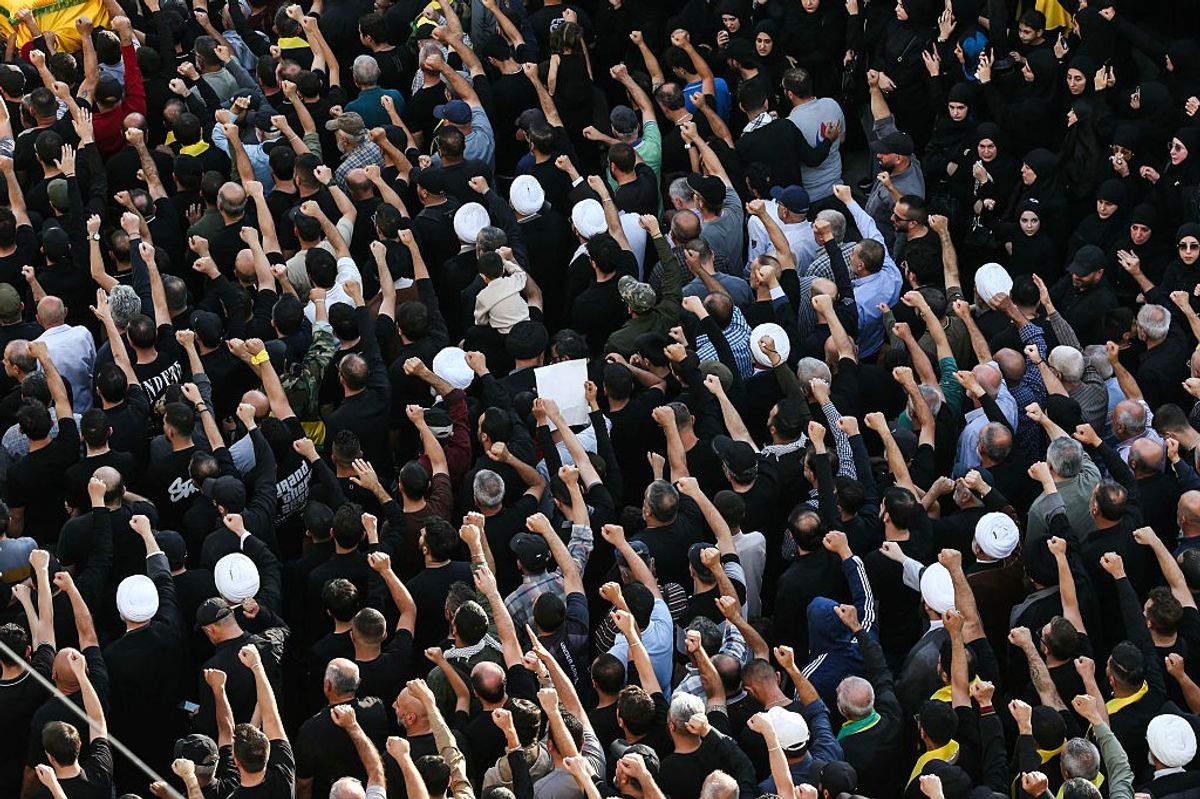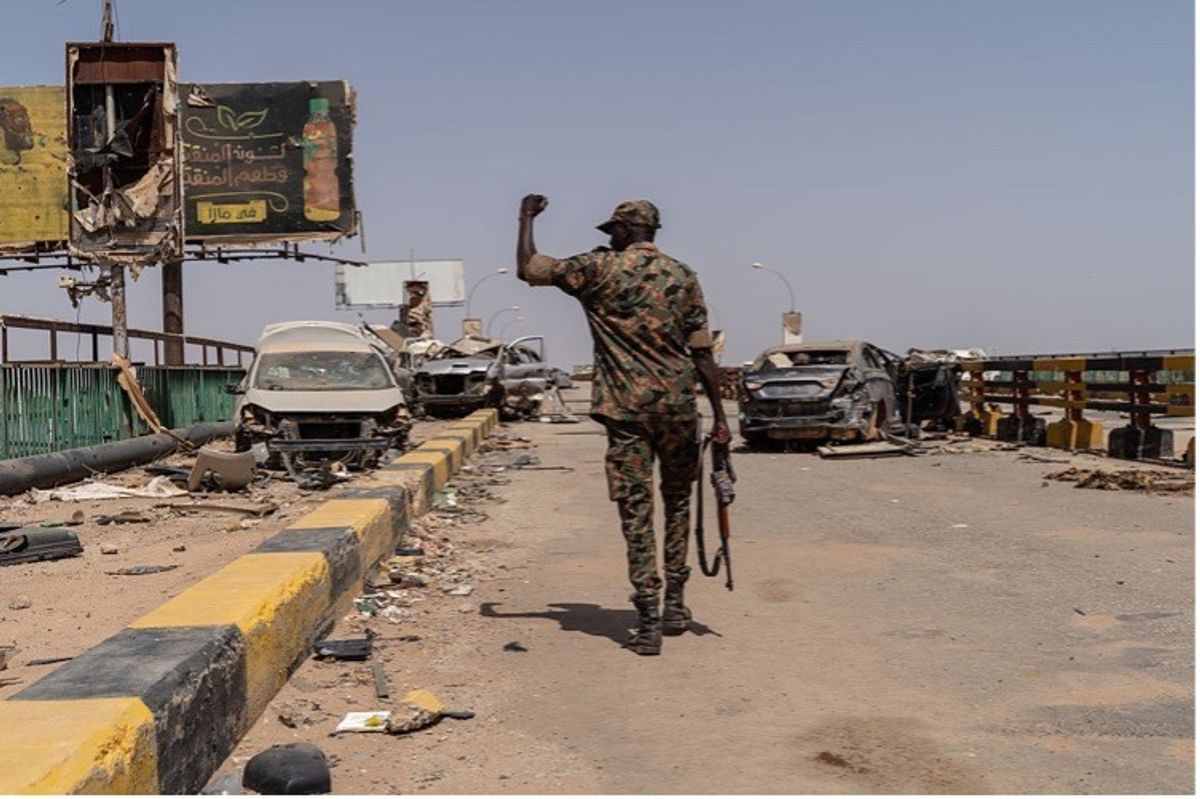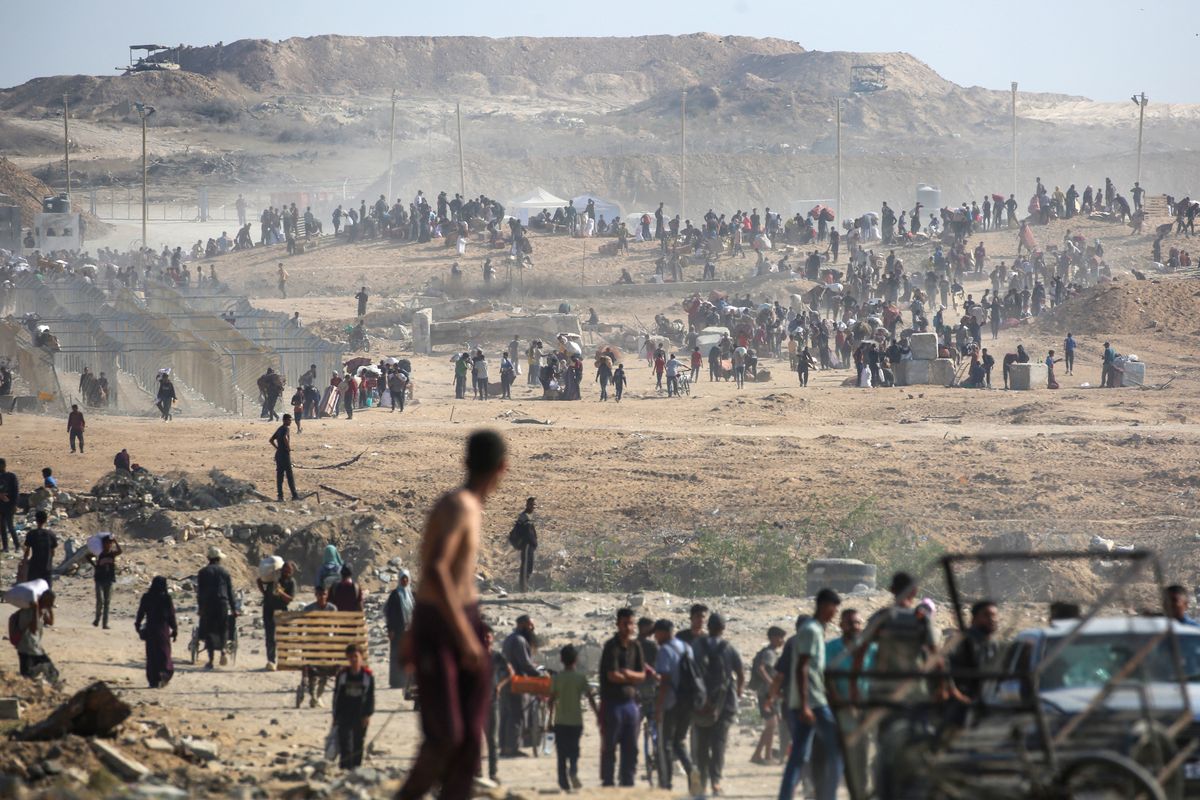EXPERT INTERVIEW – Almost lost in the Trump administration’s push for an end to the conflicts in Gaza and Ukraine, and its tariff wars against China, the European Union and Canada and Mexico, is President Trump‘s invitation to the Supreme Leader of Iran to reopen a dialogue about that country’s nuclear program. The president reached out to Iran on March 7; Supreme Leader Ayatollah Ali Khamenei said a day later that Iran would not be bullied into negotiations, but on March 9 Iran’s mission to the UN said in a social media post that “If the objective of negotiations is to address concerns vis-à-vis any potential militarization of Iran’s nuclear program, such discussions may be subject to consideration.”
All of this comes as officials at the IAEA, the nuclear watchdog group, say that Iran is "dramatically" accelerating enrichment of uranium to up to 60% purity, close to the roughly 90% weapons-grade level – but also as the country finds itself in a dramatically weakened position. Iran’s once-powerful surrogates Hamas and Hezbollah have been badly degraded by Israel’s wars in Gaza and Lebanon; and when Israel and Iran engaged in unprecedented military strikes and counterstrikes last year, experts noted that despite vows from Iran to do great damage to Israel, its counterpunch was weak.
Cipher Brief Managing Editor Tom Nagorski spoke this week with Paula Doyle, a former assistant director of operations at the CIA who dealt often with Iran during her time in the agency.
Their interview has been edited for length and clarity.
The Cipher Brief: As a candidate and as president in his first administration, Donald Trump was deeply critical of the Biden administration's approach, as too soft on Iran. In his first term, he pulled the United States out of the Iran nuclear deal, and he has now reinstituted his maximum pressure program against Iran. Now he’s saying he might like to negotiate with the supreme leader Ayatollah Ali Khamenei. How should we understand this?
Doyle: I think there's always a logic when you approach the world as you see it. Is there any new information that suggests that the Supreme Leader has softened on any of his views? I have not seen that, but if you look at the region and what the administration appears to be trying to do with its approach to Russia and Ukraine, there is a broader issue at play as well, and that is Russia's relationship with Iran.
Iran has tentacles that go deep into Syria, go deep into Lebanon, deep into Gaza, deep into Yemen, and there are other players in the region that have grave concerns about where Iran is going with its proxies and with its nuclear program. So we are not the only country looking with concern at the race towards nuclear weapons.
The real issue is its missile programs, its ability today to deliver munitions with some accuracy well beyond a region that is its normal near-abroad. That’s a NATO issue, that's a Turkey issue. The administration is going to be getting a lot of information from a lot of near neighbors of Iran and far neighbors that have been worried about the ballistic missile program.
The Cipher Brief Honors Dinner is on April 18th in Washington D.C. Apply now for your seat at the most glamorous spy dinner of the year. Find out more about this invite-only event at cipherbriefhonors.com
The Cipher Brief: On the nuclear question, we know that there are factions, many of them within Israel, suggesting that this is a moment, given the relative weakness in Iran, to go after elements of the nuclear program militarily. One might assume that the Trump administration, as close to Israel perhaps as any we've had recently, would be in that camp as well. And yet we have this invitation from the U.S. — let’s talk. Explain that.
Doyle: “Let’s talk” doesn't have to mean minimum pressure. Diplomacy is a contact sport in its finest form, and if the administration can through diplomacy offer carrots and sticks at the same time, and reach some sort of settlement where there is another negotiated pause in the nuclear weapons program, that would be a big win for the whole region.
But in the fine words of President Reagan, trust but verify. We would have to be able to get in with inspections and not be playing cat-and-mouse games with Iran as we interview old and new scientists, take samples, and figure out which new underground tunnels they're using.
The Cipher Brief: In terms of the Iranian response, it has not been consistent. One was that it would be open to talks about the nuclear program under one condition: nothing on the table except the nuclear program. The Supreme Leader himself put out a message on social media, with no reference to Trump directly, criticizing “bullying governments that seek to impose restrictions.” Do you think this process can get anywhere if it's done this way, with everybody publicly setting their boundaries before we even get started?
Doyle: This is what negotiations look like. You come in with your far edge and if there's any room to negotiate, you come a little bit closer away from the edges and you get to a point where you can find common ground to talk. The Supreme Leader still runs all aspects of national security, foreign policy, military policy and relations with the United States. So if someone else is saying something different, you can be assured that they are doing so without his blessings, and that's a dangerous thing to do. In a system like Iran, there are probably only two or three people who could get by with it, and [President Masoud] Pezeshkian is not one of them.
If I were hearing divergent views from [Mohammed] Javad [Zarif] or if I were hearing from [Mohammad Javad] Larijani, I would sit up a little straighter because they’ve been in negotiations before. They understand how the prior negotiations have played out. And they played their hand very well and got the rest of the Western world, including Russia, to say, Yes, let's only deal with the nuclear program. We're not going to deal with missiles, we're not going to deal with terrorism, we're not going to deal with your adventures in the foreign field — i.e., in Syria and Lebanon and Yemen and Gaza.
So as a new approach possibly plays out, the administration has an opportunity to look at what has happened in the last 10 years and say, Well, that didn't work very well. We could tell Tehran: Look what you did. You wreaked havoc in the entire Middle East, and by the way, you have nothing to show for it. And internally you're absolutely bankrupt and on your backs. This would be what I would call the big cracks and fissures that you look for when you want to start fresh, start anew.
Experts are gathering at The Cipher Brief’s NatSecEDGE conference June 5-6 in Austin, TX to talk about the future of war. Be a part of the conversation.
The Cipher Brief: It was intriguing to see that part of the U.S.-Russia talks reportedly included some help from the Russians with this portfolio. How does that play into this? Does that suggest this might be further along than we think? What's the game there?
Doyle: I go back to the 2007 time frame, when Russia was in pretty regular conversations with the United States and NATO over ballistic missile defense systems (BMDS) - also known as interceptors - that we wanted to put in Poland and Romania.
The Cipher Brief: By the way, that seems like another era, doesn't it?
Doyle: It does seem like another era, but it's all connected. Russia wanted to use old Soviet-style radar systems in Azerbaijan and their southern border along the Caspian Sea to defend themselves and us from increasingly longer-range ballistic missiles coming out of Iran. You know how interceptors work – a ballistic missile goes up in the air, you want maximum time to intercept it, and you need pretty state-of-the-art technologies to do so. So our side said that those old radars in Azerbaijan were not going to do the job, given the speed at which longer-range ballistic missiles have to fly in order to reach their target. And our math and science indicated the best places to be positioned to intercept incoming missiles would be in Poland and the Czech Republic and in Romania. Russia objected to that, and shortly thereafter, they invaded Georgia. At which point we said, We're done. We're done with discussions over old-fashioned Soviet style radars. The Russians are not serious. We cannot trust them.
What you have then, if you forward the clock to now, is a lot of water under the bridge and a Russia that has a great deal more experience working with Tehran on their drone programs and their missile programs. I could argue that they have seen under the skirt more than we have, and that they may have information that would be useful to us. Whether Russia is willing to leverage that information against a partner that has provided them support during a very unpopular and unwinnable war against Ukraine is yet to be determined. But the Russia-Iran relationship is not born of deep friendship or trust, so it could be a time when we say, We don't like what's going on. But tell us a little bit more about what you see in the Iran Ballistic Missile Program. Are there areas where we can talk? And if the answer is no, the answer is no. If the answer is yes, that's very important.
The Cipher Brief: You made the point that diplomacy is a contact sport, and in this arena between the United States and Iran, we have to consider the possibility that negotiations would include the biggest element of “contact sport” possible, namely: take this deal on the nuclear front, or we're going to green-light the Israelis, or we're going to do it ourselves, meaning going after elements of the nuclear program militarily. The Israelis did do that to a small extent last year. Does that sound like a likely path now, given what we know and observe of the Trump administration - as in, here's the deal, take it, or you're going to be in trouble?
Doyle: I believe it's a credible path, but the important thing about negotiations is that what you put on the table has to be credible. You can't bluff your way through this. The first time you bluff and you're shown to be bluffing, you don't get to do it again.
My own view is that while Hezbollah, Hamas, and the Houthis are on their backs, they are determined to reemerge. They can only reemerge with Iran's help. Iran has so much face to lose if it does not keep doing this and it has much face to lose if it surrenders its nuclear program. In my view, nuclear negotiations simply cannot be divorced from the whole of Iran's outward foreign policy, national security and military approach to the region. It's all intertwined.
The Supreme Leader has made no announcements that suggest that he's going to change his revolution, his cause, or his reason for being. That means that the statecraft instruments we use — diplomacy, military, intelligence, sanctions, culture, arts, music, science — fall on deaf ears. There's no listener there unless the Supreme Leader agrees to put all the piece parts are on the table.
It will take time to bring parties to the table - the Administration is trying to negotiate many deals on many fronts; one successful breakthrough could lead to many. One failure could leave other fronts stuck deep in the mud.
The people of Iran are listening and suffering, so credible public statements matter. I have great confidence in the Iranian people. But their leader is not yielding, and I think that's the obstacle.
The Cipher Brief is committed to publishing a range of perspectives on national security issues submitted by deeply experienced national security professionals.
Opinions expressed are those of the author and do not represent the views or opinions of The Cipher Brief.
Have a perspective to share based on your experience in the national security field? Send it to Editor@thecipherbrief.com for publication consideration.
Read more expert-driven national security insights, perspective and analysis in The Cipher Brief



